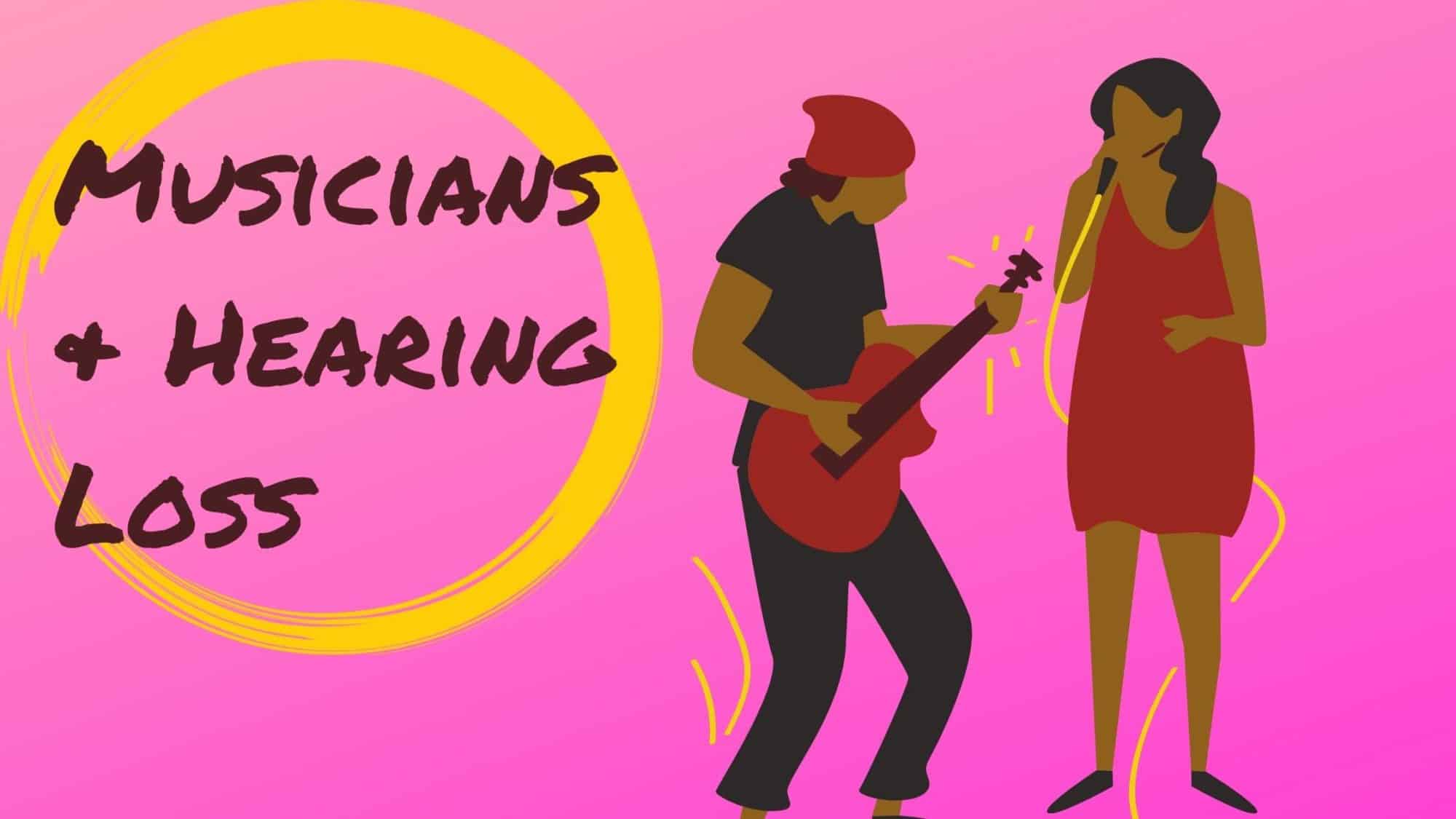- The Connection Between Hearing Loss and Dementia - July 30, 2024
- The Advantages of Rechargeable Hearing Aids - July 16, 2024
- How to Enjoy Music Festivals While Protecting Your Hearing - July 3, 2024
The onset of mid-life hearing loss can be an uncomfortable reality to face. What was once an effortless and largely unconscious connection to the hearing world becomes effortful. While hearing aids and other interventions can restore previously silent ranges, the listening experience will inevitably be different.
Among people with hearing aids, many report a sense of loss in regards to listening and enjoying music. And while it’s an adjustment for the listener, you may be surprised that musicians themselves have a higher than average incidence of hearing loss — bringing up a whole host of other adjustment concerns.
Noise-induced hearing loss
The most common reason for mid-life hearing loss is noise-induced. This type of hearing loss occurs when the inner ear cells are irrevocably damaged due to too-loud noise. This can happen instantly, such as the case with explosions or accidents. It can also happen slowly and over time with repeated exposure, such as the case with musicians.
Dangerous decibels
We measure sound in decibels (dB) in order to examine how quiet or loud noise exists on the audible spectrum. The average rock concert can measure up to 120dB. To put that into perspective, a conversation is usually around 60dB.
The National Institute on Deafness and Other Communication Disorders advises that sounds below 70dB are generally safe. Once the sound level exceeds 85dB, you are at risk of permanent hearing loss.
It’s not just rock
Classical musicians have a higher likelihood of developing hearing loss due to noise exposure. While you may think that symphonies are a quieter and more sedate mode of musical expression, they can be intensely loud and dramatic! Symphony performances are routinely measured at 96 to 98dB, but the percussion section can sometimes reach 130-140dB within close range.
The higher incidence may be because rock musicians, with their noticeably extreme loudness, are more likely to wear protective ear wear, like earplugs. Coldplay frontman Chris Martin has performed with earplugs for years.
Classical musicians are also notorious for their rigorous practice schedules and often begin training at an early age. They’re truly the Olympians of music! Often music instructors, either full-time or as a side gig, classical musicians are exposed much more often to too-loud music.
And tinnitus, too
Damage to the inner ear cells will result in hearing loss to different degrees, and can include the occurrence of tinnitus, too. This condition, in which a person hears a persistent buzzing or ringing in their ears when no external sound is present, can be debilitating. Rockers Jeff Beck and Neil Young have both spoken about their experience of suffering from tinnitus.
Invest in hearing protection
You don’t have to play a sold out show at Madison Square Garden to be exposed to too-loud sound environments. Noise-induced hearing loss can impact anyone. And if you are an avid music fan, your listening habits could be doing permanent damage.
If you frequently attend concerts, be aware of how loud the venue is. Classical fans are less likely to be harmed from their seat at an unamplified performance, but any concert-goer who’s benefiting from a stacked set of speakers should also carry a pair of earplugs with them. The best protection comes from a custom pair of earplugs made just for you, though a foam set will do in a pinch. Children attending concerts should always have protective ear wear available to them.
Watch the volume levels on your personal devices, particularly if you are wearing headphones or earbuds. It’s tempting to turn it all the way up during your favorite track, but your hearing health won’t thank you.
Schedule a hearing consultation
If you are concerned about previous exposure to too-loud noise and think your own hearing might have suffered, schedule a hearing consultation today. Our team of hearing health professionals will do a quick and painless hearing test to determine your level and pattern of hearing loss, if any.
We are also ready to help you make investments into protecting your hearing future. If your hobbies or lifestyle carry a risk for exposure to dangerous levels of noise, we can find solutions that allow you to continue to live your lifestyle and protect your hearing health simultaneously.

